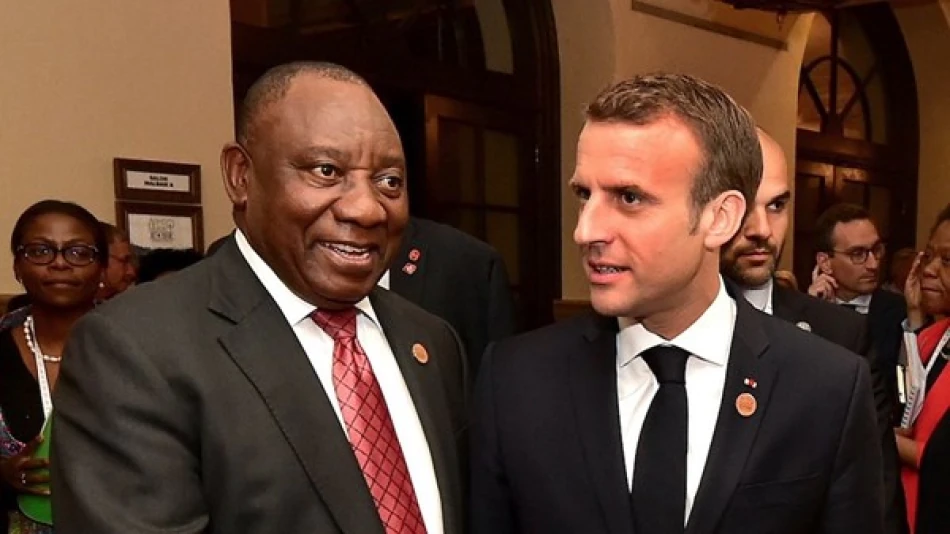
Macron and South African President Discuss Ukraine Crisis and Gaza Conflict
Macron and Ramaphosa Chart Course for More Inclusive Global Governance Ahead of G20-G7 Leadership Transition
French President Emmanuel Macron and South African President Cyril Ramaphosa held strategic discussions on Saturday covering the Gaza crisis, Ukraine conflict, and plans for reshaping global governance structures. The meeting comes as South Africa prepares to host the G20 summit while France gears up for its G7 presidency in 2026, creating a unique opportunity for coordinated leadership on international economic and security challenges.
Strategic Timing Amid Global Crises
The leaders' conversation addressed Ukraine "in the context of Monday's meeting in Washington," according to Macron's social media statement, likely referring to upcoming discussions with U.S. officials. This timing suggests coordinated diplomatic efforts as Western allies seek to maintain unified support for Ukraine while engaging with Global South partners who have taken more neutral stances on the conflict.
South Africa's position as a BRICS member and its historical non-aligned approach to international conflicts makes Ramaphosa's engagement particularly significant. The country has faced criticism from Western allies for its reluctance to condemn Russia's invasion, making this dialogue crucial for bridging divides within the international community.
G20-G7 Coordination: A New Model for Global Leadership
South Africa's G20 Presidency Ambitions
Macron expressed support for South Africa's upcoming G20 leadership, emphasizing their shared vision for "more just and inclusive global governance." This represents a notable shift from traditional Western-dominated international forums toward greater inclusion of emerging economies in decision-making processes.
South Africa's G20 presidency could focus on issues particularly relevant to developing nations, including climate finance, debt relief, and trade reforms. The country's experience navigating post-apartheid transformation and its role as Africa's most industrialized economy positions it uniquely to advocate for Global South priorities.
France's 2026 G7 Strategy
The coordination between the G20 and G7 presidencies suggests a more integrated approach to global governance than seen in previous cycles. France's 2026 G7 leadership, following South Africa's G20 tenure, could build on initiatives launched during the broader forum, creating policy continuity often lacking in international cooperation.
Economic Implications and Market Perspectives
The leaders also discussed economic and trade issues, reflecting growing commercial ties between France and South Africa. Bilateral trade between the countries reached approximately $3.5 billion in 2023, with significant potential for expansion in renewable energy, mining technology, and financial services.
For investors, this diplomatic engagement signals potential new opportunities in South African markets, particularly as the country seeks foreign investment for its energy transition and infrastructure development. French companies like Total Energies and Engie already have substantial South African operations, and deeper political cooperation could facilitate additional investment flows.
Diplomatic Calendar and Future Engagements
The leaders agreed to meet again in September during the UN General Assembly, establishing a regular dialogue mechanism that could prove crucial for addressing ongoing international crises. This September timeline aligns with traditional diplomatic calendar peaks and suggests both countries view their partnership as strategically important beyond immediate crisis management.
This sustained engagement model reflects lessons learned from recent international challenges, where ad-hoc diplomatic responses often proved insufficient for complex, multi-faceted crises requiring coordinated long-term approaches.
Most Viewed News

 Layla Al Mansoori
Layla Al Mansoori






